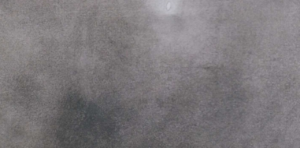Posts in Category: method
eden for breakfast
“A memory,” you said.
I was very young, still early in kindergarten. Still figuring out what school was. One very dark, grey morning, a small group of kids, myself included, were taken out of class and into the library, to a small enclosure in its corner where the head librarian was waiting with several boxes of munchkins from dunkin donuts, which I had never seen or heard of. Through the wall behind her rocking chair we could see the road and sidewalk outside the building’s entrance, all dimly lit through thick fog by orange streetlights. Between our host and the wall was a large castelet, built to look like a house with a large window which, when open, was the puppets’ stage. That morning, it was closed. There were four “trees” along the walls, each made with two sheets of wood bisecting one another, cut and painted to resemble trees. On every treetop, paper apples were taped to the branches, each apple with a different student’s name. We all got to color/draw on our apple before it went up.
The two half walls of this little library theater seemed very tall then. The trees were towers. There was a large rug covering most of the carpeted floor, with cushions and pillows scattered about and lining the walls. We brought our own blankets from our cubbies.
You started to speak, so I waited. You paused, looked at me for a long moment, then said that your kindergarten class never took their blankets to school.
“Every single day,” I said, then continued:
The librarian sat beside an end table. On the table stood a small lamp, one of a few around the room, all softly lighting the room in amber. I had no ghost of a notion why we were there.
This, I told you, was where the memory fragments. I could not remember what was said or done. I remembered a new feeling, and the idea of honey and nuts together, and something about “penny muffins” and nickles. I remembered the sense that we were there for something important, and that someone was hiding inside the castelet.
You put your hand on my chest, stopping me. Another long look. Then you sang to me:
“Five little muffins..”
“Oh.”
It all came back in a rush.
As we ate our donuts, the librarian sang the song, teaching us the participatory parts as she went. I felt almost overwhelmed by how nice this all was: the sweet and cute new food, the unfamiliar but appealing idea of honey and nuts on top of a muffin, of all things. At some point, this all became confusion as to why we were eating donuts, but singing about muffins. I thought they must be the same thing, with two names. Thinking about this distracted me from whatever the librarian said after the first time through the song while holding up a picture of something I don’t remember. All I caught was that she mentioned nickles.
But sitting beside me on the floor, I now remembered, was the girl from my class who I thought was the prettiest person or thing I had ever seen in over half a decade of life. I hadn’t talked to her, and I probably hadn’t realized I could talk to her until this moment.
“What did you say?” you asked softly.
At first, nothing. I turned and looked at her, and she looked at me. We both smiled. Then, I spoke:
“Are munchkins muffins?”
You put your hand to your smile, a thin veil across a phantom laugh. I didn’t need to tell you that your reaction was hers, or that we never spoke again.
We never spoke of her again. There is no such thing as an untold story.
between gray and grey
Before the beginning is the tricky part, I guess. But when you’re writing the beginning, how do you differentiate it from what came before? How do you start anything? How could anyone end anything?
With nothing. That’s the entire continuum; the words and the nothing between. That wasn’t obvious to me, of course, for years. How many thousands of notebook pages can you fill before the beginning and end are ultimately almost meaningless? I am not a musician or a mystic, so this stuff has to turn up arranged just the right way on a page, or I’ll never get it. Well I got it; like a fucking bullet:
